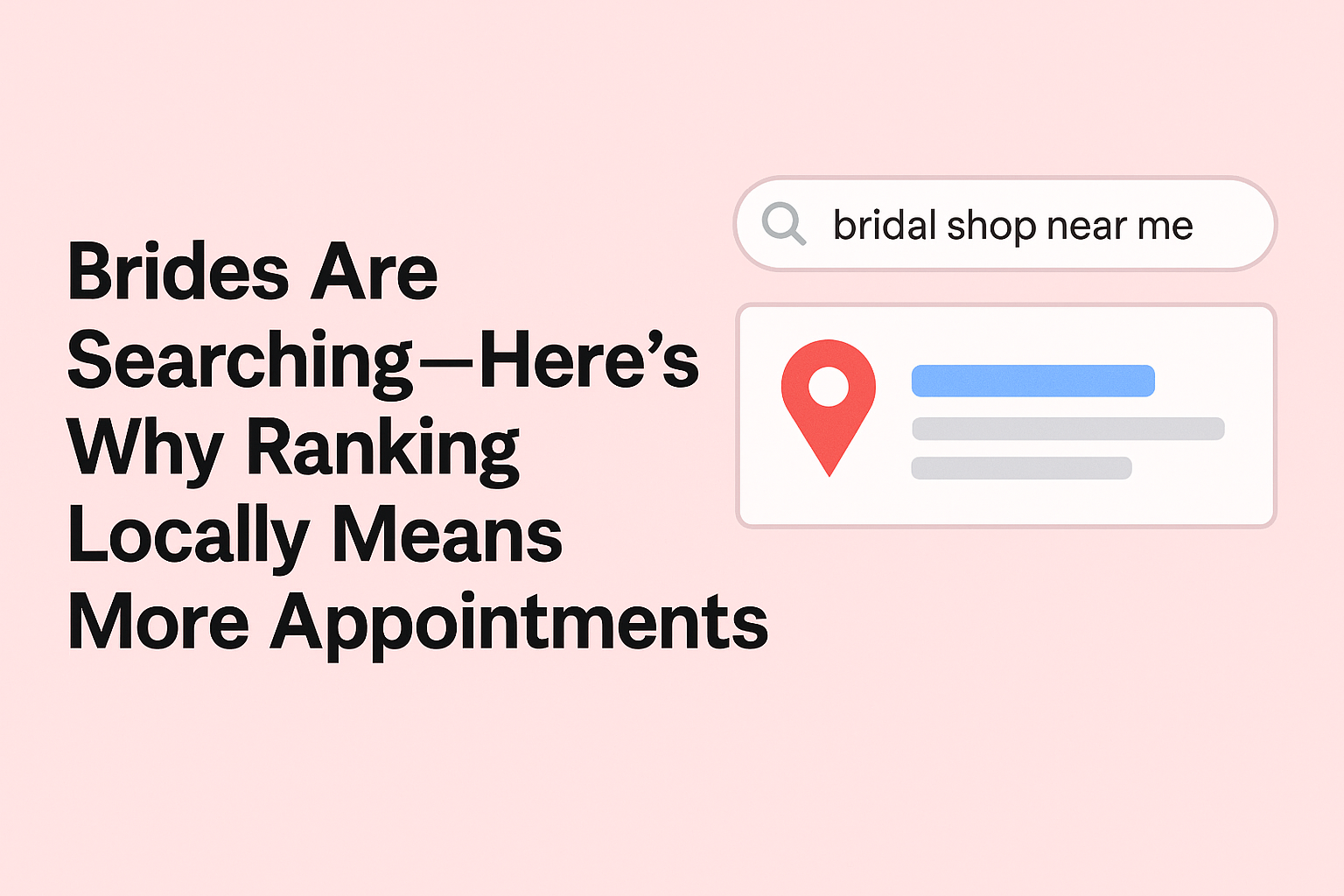Maximizing Your Bridal Shop’s Online Accessibility with the ADA Tax Credit

As a bridal shop owner, you understand the importance of creating an inviting, inclusive experience for every bride who walks through your doors. But did you know the same standard applies to your shop’s online presence? Under the Americans with Disabilities Act (ADA), websites are required to be accessible to everyone, including individuals with disabilities. This means that if your website isn’t designed with accessibility in mind, your bridal shop could be at risk for costly lawsuits, as many businesses have found themselves targeted by legal action for failing to provide equal access online.
In fact, ADA-related lawsuits for website accessibility have been on the rise. This puts bridal shops like yours in the spotlight—if your website isn’t ADA-compliant, you’re not only excluding a significant portion of potential customers but also exposing your business to potential legal challenges. However, by making the necessary adjustments to meet ADA standards, you not only avoid these risks but also position your shop as an inclusive brand that serves every bride. Plus, there’s a financial incentive to doing so: the ADA tax credit.
What is the ADA Tax Credit?
Under Section 44 of the IRS Code, small businesses can take advantage of a tax credit that covers 50% of eligible accessibility-related expenditures up to $10,250 per year. This can result in a credit of up to $5,000 for your bridal shop—money you can reinvest into your business while improving your digital and physical accessibility.
For example, let’s say your shop invests $3,000 in website design and development to make your site ADA-compliant. After subtracting the first $250, you are left with $2,750. You would then receive 50% of this amount, which equals $1,375 in tax credit. This not only helps offset the cost of compliance but also ensures that your website is accessible to all customers, reducing the risk of legal action.
Are You Eligible?
To qualify for the ADA tax credit, your bridal shop must meet one of these criteria:
- Your business generated $1 million or less in gross revenue in the prior year.
- You employ 30 or fewer full-time employees.
This makes the credit accessible to most small bridal shops looking to enhance their web presence.
How Does Website Accessibility Factor In?
The ADA extends its accessibility requirements to the digital space, meaning websites must also be accessible. If your bridal shop has invested in optimizing your website for accessibility—whether it’s through improving homepage adjustments, restructuring page hierarchies, providing live chat support, or paying for file/media remediation—those expenses are eligible for the ADA tax credit. These efforts don’t just serve your customers; they can also lower your tax bill.
Other Qualifying Expenses
Along with website accessibility, the ADA tax credit covers:
- Sign language interpreters for events or consultations
- Adaptive equipment for your shop
- Accessible formatting for printed materials, such as braille or large print
- Removing architectural barriers within your store or delivery vehicles

Applying for the ADA Tax Credit
Applying for this credit is easier than it sounds. Once you’ve confirmed your eligibility, you’ll need to fill out Form 8826, which is available on the IRS website. Attach this form to your annual tax return. You can carry forward any unused credit to the next tax year if your credit exceeds your tax liability.
For detailed guidance, consider consulting your tax professional. Many CPAs aren’t aware of this credit, so make sure they know about Form 8826 and the eligible expenses your bridal shop has incurred to streamline the process.
Making Your Bridal Shop Accessible and Profitable
By investing in accessibility, your bridal shop becomes more inclusive, builds trust with your customers, and can attract a broader range of brides. With the added benefit of the ADA tax credit, enhancing your digital presence becomes a smart, cost-effective choice that aligns with both your business goals and legal responsibilities.
Take the next step toward making your shop accessible to all and unlocking valuable tax savings.



